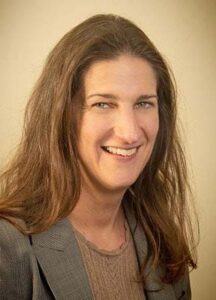Multi-Electron and -Proton Chemistry: from Biology to Solar Fuels

We will hear from our distinguished speaker, Prof. Louise Berben. The event will include a presentation followed by a Q&A session.
Abstract: Small molecule transformations, such as CO2 or N2 reduction, in biology and solar fuels chemistry require multi-electron and multi-proton reaction sequences. The goal of synthetically realizing these reaction types provides a rich landscape for exploring new ideas in the design, synthesis, and characterization of inorganic and organometallic molecules. This talk will explore the molecular space where conjugated organic molecules and metal-metal bonded clusters provide electronic structures with delocalized frontier molecular orbitals. Just like in heterogeneous materials, these molecules have low kinetic barriers for electron and proton transfer reaction chemistry that enable transformations such as low potential ET, concerted ET, PT pathways and fast PT. These processes can be characterized using the powerful characterization tools of molecular chemistry to obtain new insights into reaction mechanisms and electronic structures.
About Speaker:
Prof. Louise Berben was born in Sydney, Australia. She received a Bachelor of Science degree with 1st class honors from The University of New South Wales in 2000, and in 2005 was awarded a Ph.D. from the University of California Berkeley for research undertaken with Professor Jeffrey Long.
In 2006 Louise began postdoctoral research with Professor Jonas Peters at the California Institute of Technology and in July 2007, moved with the Peters research group to the Massachusetts Institute of Technology. In July 2009, Louise joined the faculty at the University of California Davis where her research program focuses primarily on synthetic and physical inorganic chemistry.
